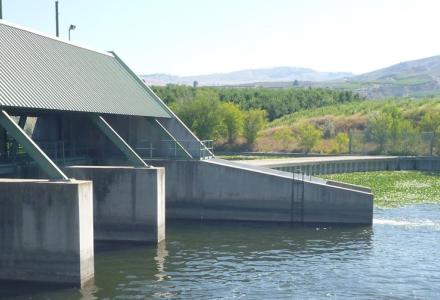
The Great Lakes Waterways Conference is an ideal forum for hearing a wide variety of views on issues that affect all aspects of the Great Lakes, from transportation to recreation, ecosystems, and economics. Participants find that it provides the kind of perspective that everyone needs to truly understand the consequences of environmental management decisions.
The conference was held Feb. 4-5 in Cleveland.
 An icebreaker in the Detroit River. Credit: John Nevin.
An icebreaker in the Detroit River. Credit: John Nevin.
This event was once called Marine Community Day, but was renamed to reflect the fact that topics discussed are of interest to all Great Lakes stakeholders. The Boundary Waters Treaty identifies shipping as a use of shared waters, and the Great Lakes Water Quality Agreement addresses issues related to vessel discharges that are harmful to water quality.
The IJC has been reporting on the risk of introducing aquatic invasive species through the discharge of ballast water since 1990. Since 2009, IJC has been a partner with the St. Lawrence Seaway Development Corp. in sponsoring the Great Lakes Ballast Water Collaborative.
The Great Lakes Waterways Conference provides critical information to keep pace with the latest developments in ballast water management and the changing regulatory landscape.
“Everyone engaged in the Great Lakes marine business is keenly aware of how important it is to be good stewards of the environment, minimize their ‘footprint,’ and look for sustainable solutions,” says Mark Burrows, a physical scientist with the IJC’s Great Lakes Regional Office in Windsor, Ontario, who attended the conference.
Burrows also noted hearing about the challenges faced by Great Lakes ports, sharing the waterways among competing interests, the potential of the Great Lakes Cruise business, updates from U.S. and Canadian agencies, and other topics.
Changes in regulations and the global economy can affect Great Lakes ports and waterways almost as much as changes to the environment such as water levels and invasive species. A very complicated mix of social, economic and environmental interests must adapt to change if they are to successfully coexist, protect and restore our precious Great Lakes.




